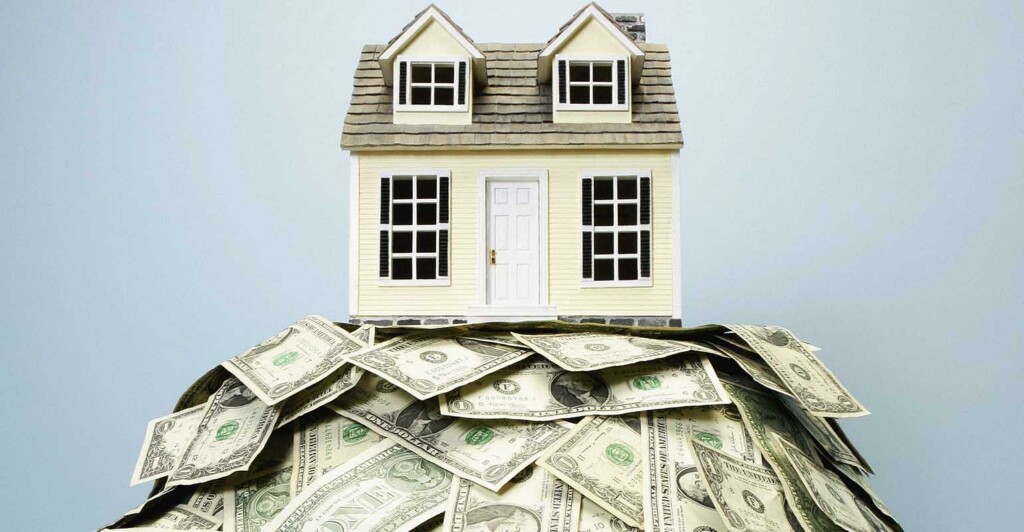HOME: Where The Heart … AND … Where The Long-Term Wealth Is!
Buying a home is the biggest financial decision most people will ever make. There is an emotional side to home ownership – it’s often baked into a person’s vision of what’s important to secure their own future or, at the very least, part of the wider touchstone ‘American Dream’. Whether you think about it often (as I do!) or whether it’s more subconscious, I believe there’s an undeniable psychological plus to owning the roof over your head; a benefit to knowing it is a ‘home’ and not just a ‘temporary dwelling’.
But I’ll be the first to admit, the benefits of homeownership don’t come without costs and limitations and for most of us, stresses and sacrifice.
My recent posts have demonstrated how, on balance, 2024 is a great time to be a Homeowner. Many housing analysts predict the stats will look even better at the end of 2024 as the housing market trifecta of strong pent-up demand, lower (finally – even if only slightly!) interest rates, and a renewed interest in the value of homeownership bolsters Real Estate, even in these socially-demanding and economically trying times.
Newly-released data from leading industry analyst, CoreLogic, shows overall volume of Los Angeles County Sales up 10.7% over the prior 12 months … Median Price up 10.5% …
But the benefits of homeownership go way beyond the current headlines or short-haul statistics. Homeownership is an effective way to build generational wealth, especially for lower-income households. Quantifying the wealth-building power of homeownership shows that home is not only where your heart is, but also where your wealth is!
In October 2023, the Federal Reserve Board of Governors published their latest triennial ‘Survey of Consumer Finances’ crunching data from household finances across the US and showing the median Homeowner has over 38 times the household wealth of a Renter – $396,200 for the former compared to $10,400 for the latter. However, that doesn’t indicate cause and effect, nor does it provide insight into the distribution of wealth. To further explore the wealth-building power of homeownership, it’s helpful to analyze the difference in wealth between Renters and Homeowners by income level.
The Survey shows Homeowners to be wealthier than Renters at every income level, and the majority of homeowner wealth comes from housing for every income category except for the very top earners. For example, for the lowest income group, the median net worth of Homeowner households is $117,600, but for Renter households it’s only $1,897. At the lowest income category, over 90% of total Homeowner net worth is tied to the value of residential property.

Between 2019 and 2022, housing wealth was the single biggest contributor to the increase in net worth across all income groups: 33% of the overall increase! This was especially true of lower income households. For households at the bottom of the income distribution, the value of housing wealth increased by $22,700 – more than all other asset types combined. All this despite the unprecedented disruptions of the Covid crisis!
The lower the income of a Homeowner household, the greater the share of its wealth came from homeownership. This pattern has remained consistent over the last three decades, according to the historical Survey data. In 2022, housing wealth represented, on average, nearly 78% of the total assets of the lowest-income households. For households in the middle of the income distribution, housing wealth represented between 54% and 68% of total assets, and for the highest income households the figure was 32%.
The difference in the composition of wealth means that fluctuations in home prices will have a much bigger impact on the wealth of lower-income families than of those that have a mix of other assets. Over three decades – years that include recessions and volatility in the housing market – the Federal Reserve and other studies demonstrate that homeownership leads to greater wealth accumulation when compared with renting. Renters don’t capture the wealth generated by house price appreciation, nor do they enjoy tax benefits, or the equity gains generated by monthly mortgage payments reducing principal owed, which in itself becomes a form of forced saving for Homeowners.
There are certainly risks from homeownership, and its benefits are not uniform across all markets. However, whether you’re considering a transition into homeownership, or you’re a current Homeowner considering scaling up, scaling down, or perhaps acquiring investment property, decades of data reassuringly supports the statement that: HOMEOWNERSHIP IS AN IMPORTANT, POSITIVE DRIVER OF WEALTH CREATION!
“Call Paul!” 310.218.9256! Together we’ll explore your particular circumstances …

A conversation costs you nothing, but the results can be life-changing!
Cheers & Be Well – Let’s talk soon!

Join The Discussion